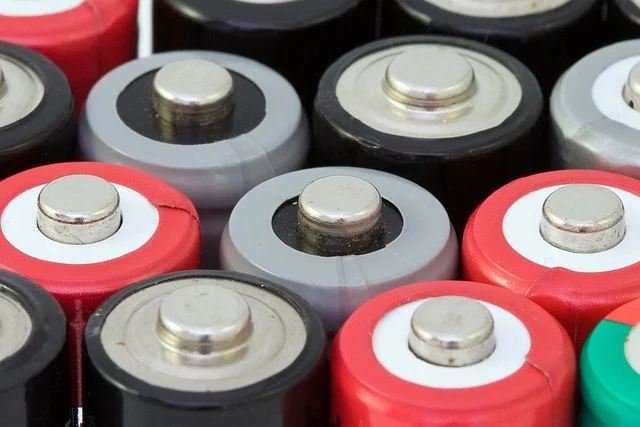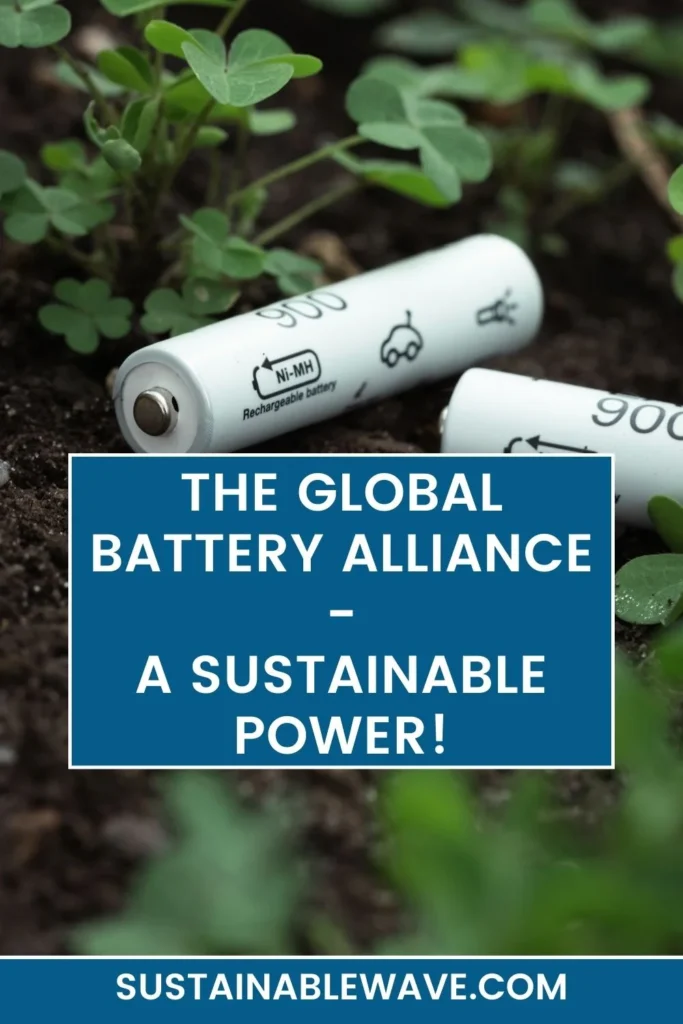Founded in 2017 under the auspices of the World Economic Forum, the Global Battery Alliance (GBA) is a unique public-private collaboration. Its mission is to forge a sustainable battery value chain by 2030, pivotal for confronting climate change.
The GBA unites diverse stakeholders—international organizations, NGOs, industry leaders, academics, and governments—in a pre-competitive, collective approach to systemic change.
Born from the World Economic Forum and gaining independence in 2021, the GBA adheres to ten guiding principles aimed at establishing circular, responsible, and equitable practices in battery production, life cycle management, and raw material extraction, all vital for a sustainable future.
When Was the Global Battery Alliance Founded?

The Global Battery Alliance (GBA) was conceptualized and founded in 2017 at the World Economic Forum, marking a significant step towards addressing the environmental and ethical challenges of the burgeoning battery industry.
Initially incubated by the World Economic Forum, the GBA represented a collaborative effort to bring together diverse stakeholders from international organizations, NGOs, industry sectors, academia, and governments. This alliance was established with a clear vision to transform the battery value chain into a beacon of sustainability and responsibility by 2030.
In 2021, the GBA transitioned to an independent entity, signifying its growth and the increasing importance of its mission. This evolution reflects a deepening commitment to address the complex challenges associated with the rapid scale-up of battery production, a critical factor in combating climate change.
The GBA’s journey from its inception to its independent status is a testament to the growing recognition of the need for a sustainable approach to battery production, encompassing ethical sourcing, manufacturing, and recycling practices.
The 2030 Vision and Guiding Principles
The GBA’s 2030 Vision is a pioneering roadmap, aiming to foster a circular, responsible, and just battery value chain.
This vision was extensively detailed in a foundational analytical report conducted collaboratively by the Global Battery Alliance, the World Economic Forum, McKinsey & Co., and SYSTEMIQ.
The report underscores the urgent need to manage the environmental and social challenges associated with battery raw material extraction, production, and lifecycle management, in the face of an escalating demand for batteries.
Central to achieving this vision are the Ten GBA Guiding Principles, which serve as the cornerstone for a sustainable and responsible battery value chain.
These principles encompass a broad range of objectives, including establishing a circular battery value chain to support the Paris Agreement, ensuring a low carbon economy in the value chain, and safeguarding human rights under the UN Sustainable Development Goals.
The principles advocate for maximizing battery productivity, promoting renewable energy, fostering job creation, and ensuring responsible trade practices.
By committing to these principles, GBA members pledge to work towards a future where battery production not only powers a sustainable energy transition but also upholds the highest standards of environmental stewardship and social responsibility.
Action Partnerships and Key Projects
This initiative represents a cornerstone project of the GBA. Its aim is to establish a set of global criteria, data, and benchmarks that define and ensure a sustainable and transparent battery market.
This partnership focuses on creating a universally recognized ‘passport’ for batteries, signifying adherence to sustainability standards throughout their lifecycle.
Addressing the sourcing, processing, manufacturing, and recycling of critical materials, this partnership is dedicated to minimizing environmental impacts while protecting human rights.
It emphasizes the responsible management of materials essential for battery production, ensuring that their extraction and use align with sustainable practices and ethical standards.
A key project focusing on emerging economies, this partnership aims to improve energy access and promote the concept of circularity in these regions. It includes efforts to reduce lead poisoning, a significant health concern associated with battery recycling, especially in less developed areas.
The project underscores the importance of creating sustainable battery ecosystems that contribute to the overall health and well-being of communities.
Collaboration and Membership

- Diverse Membership
The GBA prides itself on its diverse membership base, which includes:
- International organizations and NGOs, bringing expertise in global policy and humanitarian perspectives.
- Industry leaders and corporations, offering practical insights into the battery market and technological advancements.
- Academics and research institutions which contribute cutting-edge research and innovative solutions.
- Multiple governments, ensuring regulatory support and international cooperation.
- Multi-Stakeholder Governance Structure
The GBA operates on a multi-stakeholder governance model, designed to foster inclusivity in decision-making and strategic focus. This approach ensures that all voices, from corporate to governmental to non-profit, are heard and integrated into the alliance’s strategies.
- Collaborative Approach
The GBA emphasizes a pre-competitive, collective approach, allowing members to pool resources and expertise in a non-competitive environment. This collaboration is key to driving systemic change along the entire value chain, from raw material extraction to end-of-life recycling.
- Membership Criteria and Benefits
Organizations and entities interested in joining the GBA must be committed to the principles of sustainable and responsible battery value chains. Membership offers the opportunity to be at the forefront of global efforts to transform the battery industry, allowing for significant networking, influence, and collaborative opportunities within this critical sector.
Impact and Challenges
The Global Battery Alliance (GBA) has made substantial strides in reshaping the global battery industry, yet it faces numerous challenges in its quest for a sustainable and responsible battery value chain by 2030.
The GBA’s impact is far-reaching, influencing policy, industry practices, and global environmental standards. Through its collaborative efforts and initiatives, the GBA has heightened awareness of the environmental and social implications of battery production and disposal.
Its emphasis on a circular economy has spurred innovation in battery recycling and reuse, reducing waste, and conserving valuable resources.
Furthermore, the GBA’s focus on ethical sourcing and human rights has brought much-needed attention to labor practices in battery material extraction, particularly in developing countries.
However, the path to achieving the GBA’s ambitious goals is fraught with challenges.
The rapid growth in demand for batteries, driven largely by the electric vehicle (EV) and renewable energy sectors, presents a significant challenge in scaling up sustainable practices quickly enough to meet this demand.
Managing the environmental footprint of this expansion, especially the carbon emissions and resource consumption involved in battery production, remains a daunting task.
Additionally, ensuring a consistent and global adherence to ethical standards, particularly in the context of human rights and labor practices in mining and manufacturing, is a complex issue that requires continuous effort and vigilance.
Another significant challenge is the technological and economic feasibility of recycling and repurposing batteries.
Developing efficient and cost-effective methods for battery recycling is crucial for a sustainable battery life cycle.
The GBA also faces the challenge of aligning the diverse interests and capabilities of its members, ranging from governments to NGOs to industry players, each with its own priorities and perspectives.

I’m Thomas, the owner of SustainableWave. Passionately promoting a sustainable planet. With experience in various eco-roles, I’ll share green tips, sustainability hacks, and personal eco-journeys on my blog.






